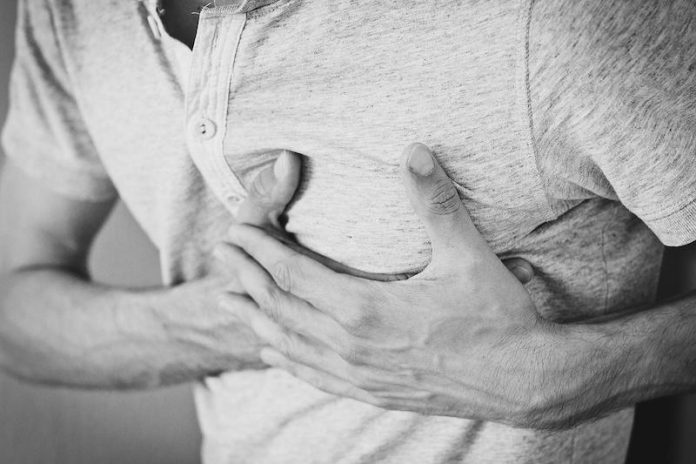
Scientists from the University of Manchester developed a new gel that can help to repair heart damage caused by a heart attack.
The research was presented at the British Cardiovascular Society conference and was conducted by Katharine King et al.
Scientists have been looking for ways to introduce new cells into damaged hearts for years, as a way to repair them and reduce the risk of progression to heart failure.
In the study, the team developed a new biodegradable gel that can be safely injected into the beating heart to act as a scaffold for cells to grow new tissue.
The researchers hope their gel will become a key part of future regenerative treatments for damaged hearts.
For any successful treatment, a good blood supply will be vital for the injected cells to develop into new tissue.
The researchers saw early signs of blood vessel growth in the gel, proving the technology could boost the growth of new vessels.
They also showed that the gel can support growth of normal heart muscle tissue.
When they added human cells that had been reprogrammed to become heart muscle cells into the gel, they were able to grow them in a dish for three weeks and the cells started to spontaneously beat.
In order to prove that this technology could work in a living heart, the team injected the gel with a fluorescent tag into the hearts of healthy mice.
The fluorescent tag revealed that the gel remained in the heart for two weeks.
Echocardiograms (ultrasounds of the heart) and electrocardiograms (ECGs, which measure the electrical activity of the heart) confirmed that the injection is safe for the heart.
The researchers now plan to try this treatment in mice straight after a heart attack, to see whether the heart cells can develop new muscle tissue and help restore the heart’s ability to pump efficiently.
The gel is made of chains of amino acids called peptides, the building blocks of proteins. The bonds between the peptides mean that the gel can exist in different states.
When it’s under stress the peptides disassemble and behave like a liquid, making it ideal for injecting.
When the stress is removed the peptides re-assemble almost immediately and behave like a solid, holding the cells in place as they graft onto the heart.
If you care about heart health, please read studies about the best blood sugar levels to prevent strokes, heart attacks, and Vitamin K may lower your heart disease risk by a third.
For more information about heart health, please see recent studies about why obesity increases heart damage in COVID-19, and results showing this drug combo can halve your risk of heart attack, stroke.
Copyright © 2022 Knowridge Science Report. All rights reserved.



